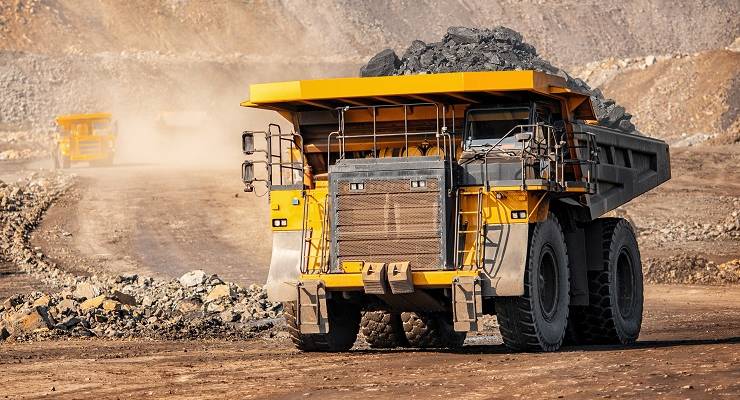
This week in Fossil World’s Countries in Profile series we look at Australia — once known mainly for its beautiful beaches and exotic wildlife but now the home of an exciting new style of corporate governance that is reaping big dividends for fossil fuel investors.
Southern hemisphere carbon state Australia will face a spill of management in coming weeks, with shareholders set to elect a new management team to steer the fossil fuel giant through what is shaping up as a bumper period of high commodity prices.
Australia’s key controlling investors Woodside, Santos, Origin, Chevron, Yancoal, Glencore, Adani and Whitehaven will decide on a new management team to oversee operations in coming weeks, with the remaining ~10% of voting shares held by Australian citizens expected to play little role in the decision.
There are strong market rumours that the incumbent management team led by Scott Morrison will be removed in favour of a new team led by Sydney-born Anthony Albanese (no relation to former Rio Tinto head Tom Albanese), who offers more ESG-friendly credentials while committing to continue the expansion of coal and gas across the country. However, statements this week from fossil fuel investors’ media arm News Corp suggested that Morrison’s team may be returning to market favour.
The incumbent management team has worked hard to increase profits for investors and facilitate the expansion of fossil fuel projects across the large landmass — just this week, industry division manager Angus Taylor proposed new rules to prohibit the closure of coal-fired power stations. However, Morrison and his executives have been harmed by a succession of scandals over misconduct — the embarrassing public behaviour of Morrison’s deputy, the suspension of executives in response to allegations of sexual assault and violence, the rorting of company funds by executives and the persistent rejection by Morrison and his team of efforts to improve accountability and impose performance standards.
Worst of all, Morrison himself has been repeatedly caught out lying, including to international leaders, and is regarded as overly passive and prone to avoiding responsibility when things go wrong.
While Albanese and his team have been criticised as less likely to generate profits for fossil fuel investors, they have their own strong links with investors through pro-fossil fuel workers’ organisations such as the AWU and the CFMMEU, which are powerful financial supporters of the Albanese slate of executives.
Under new management
Previously a democracy, Australia was acquired by fossil fuel investors in the early 21st century after they purchased the conservative Liberal and National parties and took a strategic stake in the Labor Party; executives who were regarded as having performed particularly well were rewarded with director positions on a variety of fossil fuel boards, while key regulatory institutions — especially climate and environment bodies — were converted to agencies of fossil fuel interests through the appointment of energy and resources executives to key positions.
The small stake held by Australian citizens presents occasional tensions for executives, with a large majority of Australians favouring climate action and a curbing of fossil fuels, but fossil fuel executives appointed to key advisory positions within administrative structures act to ensure that tensions are always resolved firmly in the interests of investors. In-house media arm News Corp is also proactive in supporting information-sharing efforts on behalf of fossil fuel interests to counter alarmist anti-carbon hysteria from extremists.
Management at provincial levels in Australia have also proved troublesome; in regions such as New South Wales (on the east coast) and Victoria (on the south coast), investor efforts to acquire governments have proved less successful and those administrations have been poorer at maximising fossil fuel profits.
Nonetheless, Australia represents the world’s first carbon state outside the oil sheikhdoms of the Middle East, and it has proved a richly rewarding business model for investors. The current commodity price spike has delivered hundreds of billions in windfall profits to energy and resource companies with little in the way of additional tax payable to state institutions; instead, investors enjoy significant financial handouts paid for by other taxpayers.
The famous “Land Down Under” may yet have much to teach the world in proper corporate governance.








“It’s [not] funny because it’s true!”
If a change of executive does occur, the Board Minutes of the last nine years will provide interesting reading given the tradition of confidentiality has been broken by past Board Chairman Abbott.
well said but painfully on point
Difficult to read as it’s barely satire.
Love it Bernard! scary tho
The Left is also compromised by its continuing reliance on gas as a backup for renewables. We must struggle to replace gas in all usages. Knowing that there is no such thing as negative emissions, the zero emissions target of 2050 requires us to have completely replace natural gas in all of its uses. We must be vigilant against our own members saying things like “transition fuel”, “a little bit of gas won’t hurt”, “low carbon economy” and “reducing emissions by converting to gas”. The days of reductions are over, gas must be replaced.